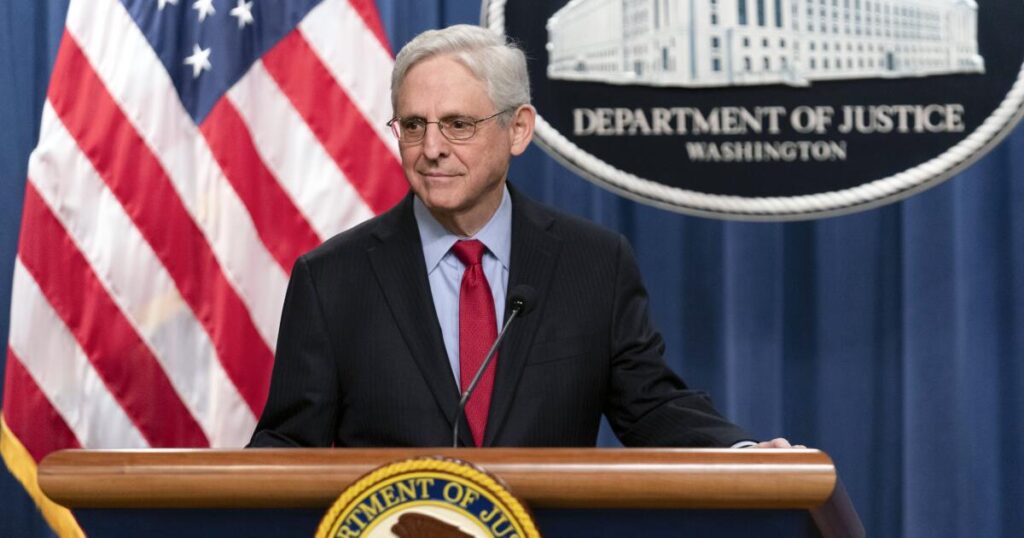Last month, the Justice Department filed a long-awaited antitrust filing. lawsuit against appleThe company was accused of monopolizing the market. smartphone market. This makes Apple the last US-based tech giant to face a major monopoly lawsuit from a federal agency. (Google too Confront someone from the Department of Justice. Facebook and Amazon It is being sued by the Federal Trade Commission. )
These lawsuits assert claims under Section 2 of the Sherman Act. The Sherman Act is an 1890 law that makes it illegal to gain or maintain significant market power through exclusive and unfair practices. The government's carefully targeted lawsuit against Apple could give consumers substantially more choice when it comes to digital platforms in the long run.
among them complaint, the government contends that Apple uses its market power over the iPhone to stifle competition through two strategies. One, it limits the interoperability (i.e. compatibility) between Apple and Google's external operating systems such as Android; two. Prevent non-Apple products from working well on your iPhone. According to the Department of Justice, this action not only degraded the experience for iPhone users, but harmed consumers by making it difficult for other smartphones to compete with Apple. Without strong competition, quality declines, prices rise, and innovation slows.
Other major tech cases have raised similar consumer welfare concerns. But this uniquely addresses the market power that companies wield as a technology ecosystem: a one-stop virtual shop where users can communicate, play, watch, and buy.
Consumers have a love-hate relationship with these ecosystems. We love how they make our lives easier. That's because we need shortcuts to navigate our virtual world of information overload. Apple and other companies satisfy that desire by offering a single-password access to their products and an ecosystem that is theoretically curated for quality and safety. You can iMessage images from your Apple Photos library to your friend while streaming Apple Music to her AirPods. If a friend likes your photo, you'll receive a text notification on your Apple Watch. These transactions are secured by swiping up and staring in the face.
But we can also hate ecosystems. They may be akin to living in a fishbowl instead of the ocean, trading simplicity for the diversity of a much larger world. The biggest barrier to leaving the fishbowl is the cost of trying something different. If you want to move away from Apple, you might have to learn a completely different interface, quit your favorite apps, re-enter your data, and keep track of new passwords. Plus, you could be spending thousands of dollars to replace your cell phone, watch, laptop (and more). These switching costs give Apple the power to raise prices and lower product quality without fear of alienating consumers.
Additionally, ecosystem structure creates a 360-degree view of our consumption habits, likes, dislikes, and relationships. While this data is extremely useful for businesses, it may seem futile for consumers to try to protect it. When Apple changes its privacy policy, makes a “leave-it-or-leave” update, and updates its lengthy and confusing terms of service, is “leave-as-is” a realistic option? I don't think so.
For decades, antitrust enforcement has been too lenient on the corporate ecosystem. For example, it tolerated “non-horizontal” mergers between companies that do not directly compete to sell products to consumers.Regulators allowed Apple to acquire Siri, Shazam, Beats, and Dark Sky (which were shut down) apple weather) and textures ( apple news+), Apple to name a few. Over 100 acquisitions After the iPhone was released.
The assumption was that mergers between non-horizontal companies would not reduce consumers' competitive options, at least in the short term. But that approach ignores cumulative effects. As more assets were amassed under the Apple brand, it became harder for competitors to offer viable alternatives as they had to enter dozens of markets at once.
This problem is not new. Early 20th century political cartoons depicted Standard's oil monopoly power in oil production, shipping, and railroads as an octopus with tentacles. Apple could become the monopoly on the modern octopus, just because it has 100 legs instead of his 8.
Additionally, Apple and other companies may have felt encouraged by efforts such as: court ruling Over the past 20 years, companies have limited mission Address competitors and provide technology platforms with cover that limits interoperability with external products. However, where antitrust laws are aimed at excluding competitors, denial of interoperability is illegal.
Justice Department lawsuit claims Apple blocked “Super app” It could act as a bridge between platforms with the aim of locking in consumers. Apple also argues that it designed the iPhone to be largely incompatible with wearables that compete with the Apple Watch, requiring the addition of separate and expensive hardware. Replace to move away from the world of products.And Apple is accused of degrading Competitor's productsespecially Messages from Android smartphonesto give the impression that anything not made by Apple is inferior, that the world outside the fishbowl is scary and filled with green bubble letters.
These arguments tell a very plausible story about monopoly. This suggests that Apple values its consumers and product design is motivated by maintaining market share rather than competing for loyalty. Apple will propose countermeasures, which is probably consistent with previous claims that these choices improve product quality and privacy. Much of the litigation will focus on whether the companies' justifications reflect the real reasons behind their design choices.
Ultimately, this case forces federal courts to ask a more fundamental question posed by today's economy: Should consumers be given more freedom to choose their digital environments and move through the fishbowl? is asking for an answer. The answer should be yes.
Rebecca Ho Allensworth is a professor of antitrust law at Vanderbilt Law School.


